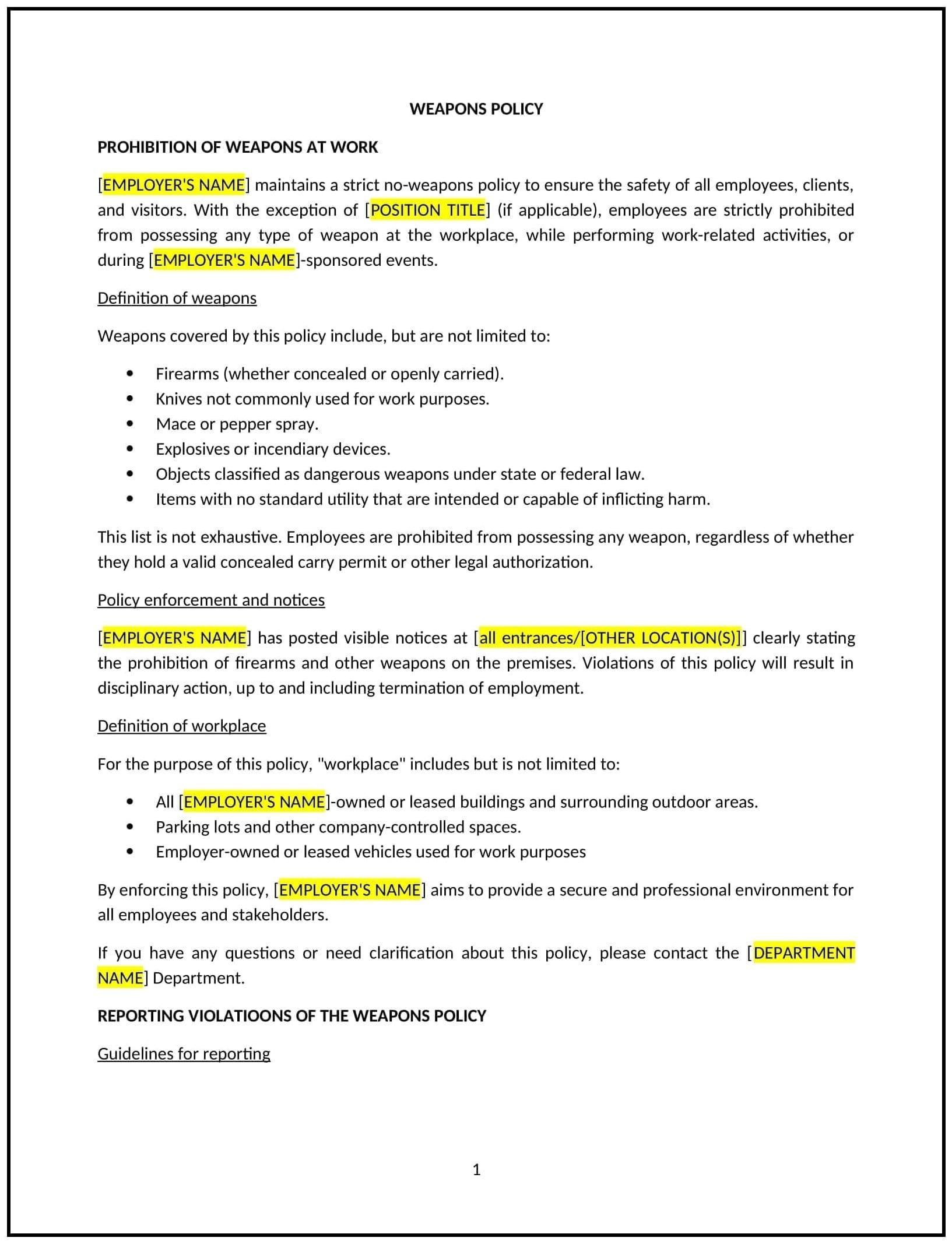Got contracts to review? While you're here for policies, let Cobrief make contract review effortless—start your free review now.

Customize this template for free
Weapons policy (Tennessee)
This weapons policy is designed to help Tennessee businesses create a safe and secure environment by establishing clear guidelines regarding the possession of weapons on company property. It outlines procedures for enforcing the policy and addressing violations.
By adopting this policy, businesses can reduce risks, promote safety, and align with general best practices for workplace security.
How to use this weapons policy (Tennessee)
- Define prohibited weapons: Specify which weapons are prohibited on company property, such as firearms, knives, or explosives.
- Establish enforcement procedures: Provide steps for addressing violations, including reporting, investigations, and disciplinary actions.
- Communicate the policy: Share the policy with employees and include it in the employee handbook.
- Train managers: Educate supervisors on enforcing the policy and handling potential violations.
- Review and update: Assess the policy annually to ensure it aligns with evolving business needs and safety standards.
Benefits of using this weapons policy (Tennessee)
This policy offers several advantages for Tennessee businesses:
- Enhances workplace safety: Reduces the risk of accidents or incidents involving weapons on company property.
- Promotes a secure environment: Demonstrates a commitment to protecting employees, customers, and visitors.
- Reduces liabilities: Helps minimize potential legal and financial risks associated with weapons in the workplace.
- Builds trust: Shows employees that the business prioritizes their safety and well-being.
- Supports reputation: Positions the business as a responsible and safety-conscious employer in the community.
Tips for using this weapons policy (Tennessee)
- Communicate the policy: Share the policy with employees and include it in the employee handbook.
- Provide training: Educate employees and managers on the policy’s guidelines and enforcement procedures.
- Monitor compliance: Regularly review reported incidents to ensure adherence to the policy.
- Address issues promptly: Take immediate action to investigate and resolve violations of the policy.
- Update regularly: Assess the policy annually to ensure it aligns with evolving business needs and safety standards.